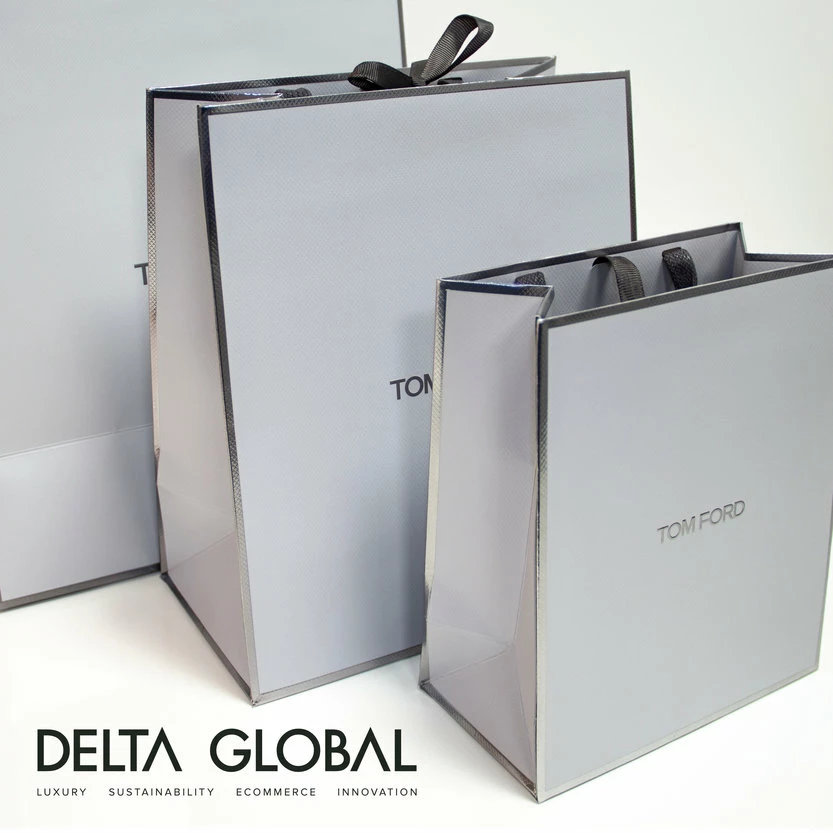
Partner Article
How introducing luxury into your life can stop the throw-away fashion culture
The acceleration of the ‘fast fashion’ business model has encouraged over consumption and excessive waste in a world enduring environmental crisis.
Aimed at consumers who demand wardrobe change in an instant, affordable and trend driven basis, the persistent market for ‘fast fashion’ is in dire need of reform and according to a top CEO luxury retail might just be the solution.
Robert Lockyer is the CEO and founder of Delta Global - a luxury packaging provider for top names such as Tom Ford, Coach and Ted Baker.
Speaking on the need to ‘fix fashion’ and the ways consumers can approach this, Mr Lockyer said: “The difficulty fashion has is the overhaul in trends, it is all about offering seasonal collections.
“But we can create a sustainable circulation of fashion by offering an avenue for re-usability in some form or another.
“Existing and emerging premium preloved sites like Vestiaire Collective is encouraging to see. While fast fashion is easily disposable and less likely to be re-used or re-sold, luxury, high-end goods re-circulate revenue and recyclability be it through re-sale, donation or second-hand use.”
Brands are also beginning to introduce these initiatives into their long-term sustainability strategies. Online retailer Farfetch has recently launched a resale platform for designer bags and reports show the secondhand market will be 1.5 times bigger than fast fashion by 2028, with used items forecasted to make up an average of 13 percent of people’s wardrobes.*
On this Robert added: “Higher value, better quality products have greater longevity meaning they are naturally sustainable.
“The introduction of luxury second-life platforms also widens affordability for consumers that are currently driving the fast fashion market due to its accessibility.”
Robert highlights that social media has also heightened the threat of fast fashion and brands should be considering their messaging when advertising.
“Online marketing is causing the younger generation to change their clothing more often. With brands using influencers to market their new lines on a daily basis, people don’t want to be seen ‘wearing the same thing twice’ in photos.”
But, Robert believes it’s a responsibility both brand and consumer has in caring for our environment. Through advertising we could encourage both new and old style, by introducing recycling and re-selling initiatives or even pairing old with new.
Individually, we should look to hone our style and invest in quality rather than quantity. Robert said: “By investing in a luxury yet limited wardrobe you will actually see it begin to reduce your spending. Buyers should look to introduce key items which become the framework to every look and can be coordinated or worn in a number of ways.
“This ‘capsule’ effect embraces the idea of decluttering life, a method championed by people like organizing consultant Marie Kondo who discusses only keeping items that ‘bring you joy’ including the things you wear – this is a lesson we should all adopt when it comes to wanting to reduce our wardrobes.”
“The process could help you to rediscover your style, remove the convenience of easy to grab fashion and literally help reduce your overspending habits. You begin to collect items you really love and it offers the opportunity to splurge on something more luxury.”
In the age of ecommerce, luxury fashion is introducing sustainable solutions to packaging to which ultimately enhances its quality, the items become more returnable, re-usable, and recyclable.
“Not only does good packaging ensure your items are kept in better condition, it adds value to your goods if you still have the original, designer packaging upon re-sale,” Robert said.
Robert finished: “The desire for new designs will never die, but an equal effort from both brands and consumer needs to go into what you do with the items you don’t use anymore to secure ourselves a sustainable future.”
This was posted in Bdaily's Members' News section by Delta Global .








 Raising the bar to boost North East growth
Raising the bar to boost North East growth
 Navigating the messy middle of business growth
Navigating the messy middle of business growth
 We must make it easier to hire young people
We must make it easier to hire young people
 Why community-based care is key to NHS' future
Why community-based care is key to NHS' future
 Culture, confidence and creativity in the North East
Culture, confidence and creativity in the North East
 Putting in the groundwork to boost skills
Putting in the groundwork to boost skills
 £100,000 milestone drives forward STEM work
£100,000 milestone drives forward STEM work
 Restoring confidence for the economic road ahead
Restoring confidence for the economic road ahead
 Ready to scale? Buy-and-build offers opportunity
Ready to scale? Buy-and-build offers opportunity
 When will our regional economy grow?
When will our regional economy grow?
 Creating a thriving North East construction sector
Creating a thriving North East construction sector
 Why investors are still backing the North East
Why investors are still backing the North East